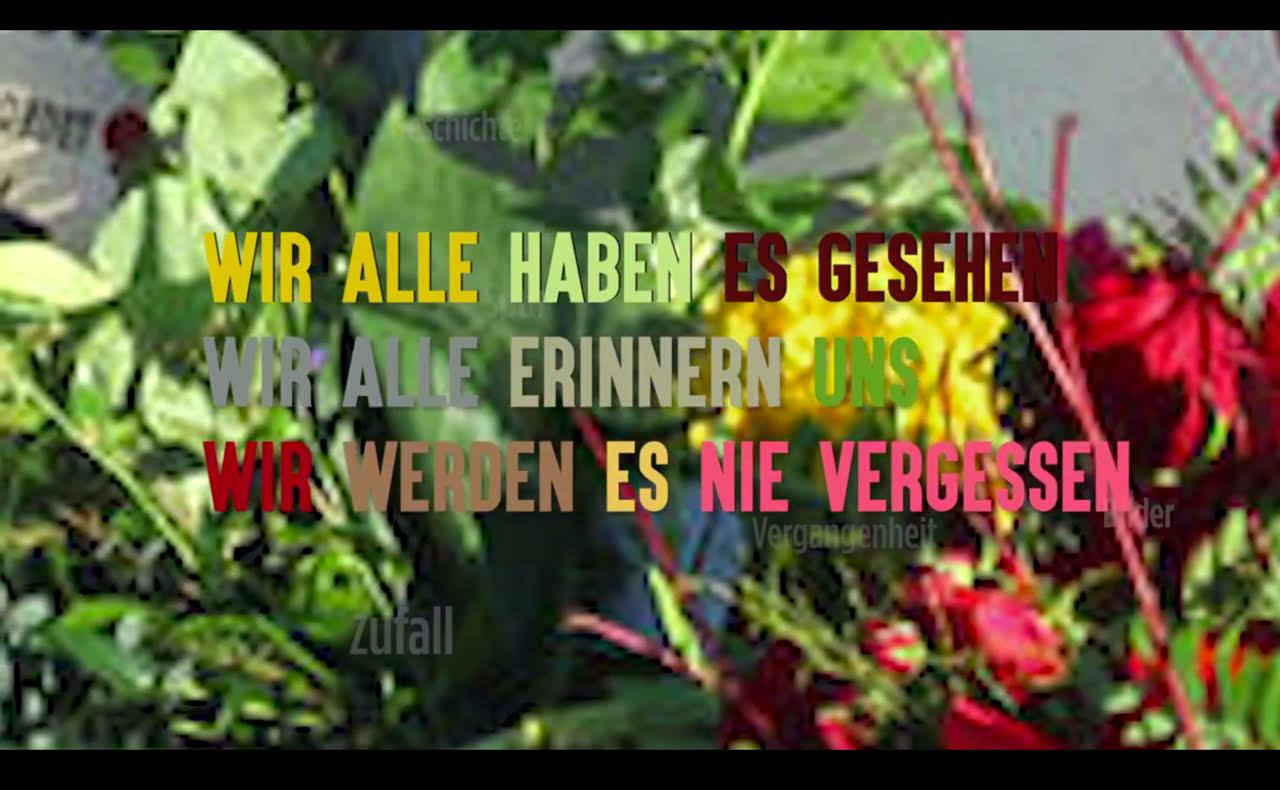The Society of Friends of Halit presents a selection of short films—known as spots— which, through the politics of film and images, enable a new (counter)narrative about the NSU Complex.
From May 17–21, 2017 the Tribunal: Unraveling the NSU Complex took place in Cologne-Mülheim. The SPOTS are short audiovisual interventions into various facets of the NSU Complex and are intended to mobilize the Tribunal. The term “NSU Complex” seeks to describe the interdependence of Nazi terror, racism, and state involvement.
To this day, the series of murders and attacks by the National Socialist Underground (NSU) has not been completely clarified. There are still open questions related to, for instance, the right-wing radical environment around the NSU, as well as to the role of the German Verfassungsschutz (domestic secret service), which had numerous informants in the perpetrators’ world.
What has become clear, however, is how deeply racism is entrenched in German society. This condition has not only enabled the actions of the NSU, but also produced methods of investigations and public discourses, which have been described by victims and concerned persons as “the bomb after the bomb.”
How can we change the field of what is visible so that racist structures can be called out? How can (post)migrant realities and perspectives be made loud and clear?
SPOTS regards aesthetics as political action. These aesthetics counter the dominant visual politics and their fixation on the perpetrators as well as the media’s disinformation about the NSU complex. They reverse what is visible, represent gestures of resistance, and formulate questions and accusations. In doing so, they seek to initiate a wider debate within society.
SPOTS is presented at The Parliament of Bodies by Aysun Bademsoy, Mareike Bernien, Madeleine Bernstorff, Cana Bilir-Meier, and Ayşe Güleç. A selection of the twenty-three SPOTS provides a framework for talking about their background and reports on the Tribunal.
Coordinated by Ayşe Güleç, Initiative 6. April, and kassel postkolonial

belit sağ, (against) randomness, 2017
Aysun Bademsoy studied journalism and theater. She is currently working as a documentary filmmaker and the author of film scripts on the second and third generation of Turkish immigrants. In such films as Mädchen am Ball (Girl on the Ball, 1995), Nach dem Spiel (After the Game, 1997), Ich gehe jetzt rein (I’m going in now, 2008), Am Rande der Städte (On the Urban Fringe, 2005/2006) and Zyklop (Cyclops, 2015/16), she presents images of Germany that reflect the changes wrought by migration. Bademsoy is now doing research for a documentary film on the NSU.
Mareike Bernien is an artist and teacher who works in the media of performative film, sound. and text. Her works based on an archeological approach to the media question ideological certainties underlying representation, its material and technological preconditions, and historical continuities. Her most recent films include Tiefenschärfe (Depth of Field, 2016/17), produced in collaboration with Alex Gerbaulet; and Rainbow’s Gravity (2014), produced in collaboration with Kerstin Schroedinger.
Madeleine Bernstorff is an author and film curator. She has been involved in (often) collaborative and research-based journalistic and artistic projects devoted to avant-garde cinema and resistance movements as they relate to feminist film theory. Bernstorff is a member of the selection committee for the International Short Film Festival Oberhausen and teaches cinema history.
Cana Bilir-Meier studied art/digital media and art education at the Akademie der bildenden Künste in Vienna. She is currently working as an educator, filmmaker, and curator in Vienna and Munich and also as a guest instructor at several different institutions, including the University of Cologne, the Weißensee Art College, and the Art University in Linz.
Ayşe Güleç, documenta 14 Community Liaison, is a social and cultural worker and educator. Since 2016, she has focused on establishing social and sociopolitical relationships between various (trans-)local communities and contexts with documenta 14. Since 1989, Güleç has been working as a social educator at the Kulturzentrum Schlachthof in Kassel, focusing on migration, education, and cultural education. In addition, she is active in self-organized initiatives and networks in the fields of anti-racism, postcolonial studies, and critical migration studies.